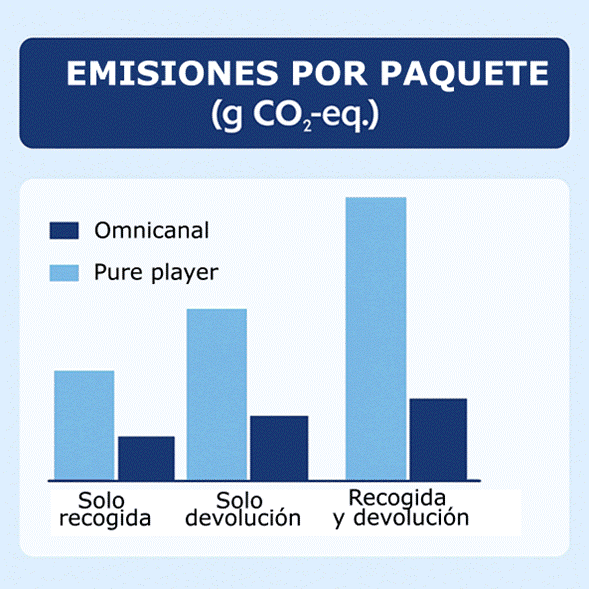UDIT researchers publish study on how TENDAM's omnichannel model reduces e-commerce's carbon footprint
The researcher David Rosas, together with a multidisciplinary team from UDIT, develops an innovative study on the carbon footprint of TENDAM's e-commerce clients, with results of high strategic value for the sector.
The study presents an exhaustive analysis of the carbon footprint of TENDAM's e-commerce customers according to their collection and/or return habits and a benchmark comparison with Pure Players.
The research comprehensively analyses the environmental impact of TENDAM's e-commerce customers according to their collection and return habits, comparing the results with the main digital players in the sector, known as pure players. The article provides solid empirical evidence on how omni-channel distribution strategies can optimise the environmental efficiency of retail, integrating sustainability and shopping experience.
The study consists of a statistical analysis of TENDAM consumer surveys conducted by Tendam Retail S.A. and the research agency ANÁLISISIS E INVESTIGACIÓN. These surveys have taken into account values such as profile, habits or perception of sustainability. A modelling of TENDAM's Omnichannel emissions by city size and type of shop was also carried out, as well as a comparative reference between the Omnichannel emissions and those estimated by statistical simulations with those of the Pure Player. Finally, our researchers have produced carbon footprint maps by shop and mode of transport, using intelligent algorithms specifically developed for this work.
The results reveal that the average carbon footprint per user of TENDAM's omnichannel model is significantly lower than that estimated for pure players. The study also shows that many customers take advantage of their trips to carry out other activities, which allows for a more equitable division of the environmental burden of the trip. This behaviour, coupled with order consolidation, in-store pick-up and the use of local inventory, reinforces the environmental efficiency of the model.
The work, developed within the framework of the TENDAM Sustainability Lab, represents a significant advance in measuring the environmental impact of digital consumption, and proposes a new paradigm in which sustainability is strategically integrated into hybrid distribution models. With this publication, UDIT researchers contribute to strengthening the transfer of knowledge between academia and business, promoting a more responsible and conscious transformation in the textile and e-commerce sector.


